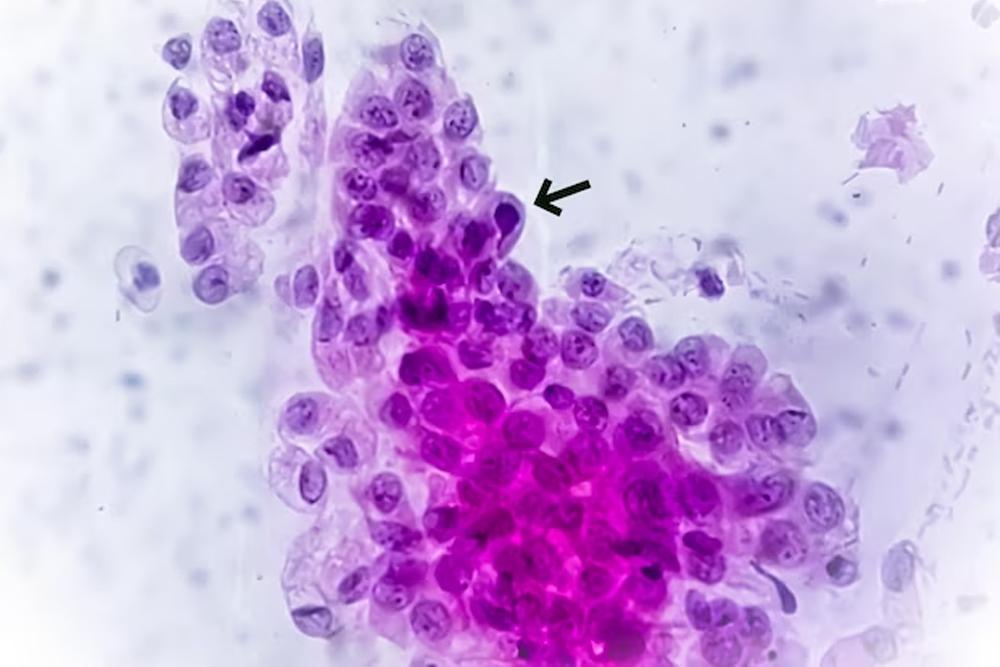Vaginal Infection

Don't Suffer In Silence
Women's Symptoms
The following are some symptoms you may be concerned about. Feel free to discuss these with your doctor—you may be advised to undergo some tests to determine their cause, so that they can be treated.

Vaginal Discharge
Your vaginal discharge may change in colour or odour and become increased in quantity. One common cause is thrush or vaginal candidiasis, which is due to an overgrowth of the yeast fungus candida albicans This condition may cause itching, soreness and redness around the vulva (the lips around the opening of the vagina). As well, an unusual white discharge may occur which is thick and looks like cottage cheese. Often, too, there is pain when you pass urine or are having sex. Fortunately thrush is not a sexually transmitted disease (STD), but your male partner might be treated too if he is found to have a similar condition affecting his penis. Another condition that frequently causes a vaginal discharge is bacterial vaginosis, sometimes called BV. In this case your discharge may become thin and watery, often with an unpleasant fishy smell, especially after intercourse. It is not usually associated with pain, soreness or itching. Despite much international research, the cause of BV has not been clearly determined. Hormonal changes during the menstrual cycle and semen in the vagina may play a part. Applying perfumed soaps to the vulval area, or using perfumed bubble baths may also contribute by changing the chemical conditions inside the vagina. Again, this is not an STD, so that your male partner doesn’t need treatment.

Trichomonas (TV)
Trichomonas (TV) is another cause of vaginal discharge and discomfort, so called because of the tiny parasite that causes it, trichomonas vaginalis. This organism can be easily passed from one person to another through sexual contact. This may result in soreness, itching and redness in and around the vagina; so there can be discomfort when having sex. The discharge itself can vary in amount, but may be thin and have an unpleasant odour. And as this is sexually transmitted, it is very important that your current and recent sexual partner(s) is also tested and treated. Other sexually transmitted infections such as Chlamydia and gonorrhoea may also provoke a vaginal discharge, and so it is important to test for these as well. Similarly, the group of bacteria which causes non-specific genital infection may also cause discharge. When this affects men, the condition is often called NSU, or non-specific urethritis. Screening tests for these tiny bacteria have recently become available for use in the UK, and our Sexual Health service is fortunate to be able to offer them now. A particular reason to find and treat these sexually transmitted infections is that there is strong evidence that they may cause pelvic inflammatory disease (PID) if left untreated. As well as it possibly leading to infertility if not treated early, PID may cause persisting pain in the pelvis or lower back. Your doctor can give you more information about this complication, or direct you to medical websites such as ww.bashh.org.uk.
There are many other causes of discharge, but fortunately most appear to have a natural cause, such as the fluctuation in your natural hormonal cycle, or the possible effect of the contraceptive pill or patch. Your doctor will be able to discuss some of these other causes with you, and reassure you that you do not have an STD (if your tests are all clear).
How do we test for causes of vaginal discharge?
After listening carefully to your story and symptoms, the doctor may recommend you have a physical examination. He (or she) will be able to fully explain to you what this entails, and you will be able to ask for a chaperon to be with you if you wish. An experienced female attendant can be provided for you by the clinic, although some patients prefer to have their husband, partner or relative with them.
One of the purposes of an examination is to see if there is any inflammation of the vaginal canal or on the cervix (the neck of the uterus, or womb), and the nature of any discharge internally. This can provide important clues as to the diagnosis. In the case of you having pelvic pain, the doctor may suggest in addition an internal
manual examination ( using the hands) to check for inflammation of the womb or fallopian tubes (which conduct the eggs from the ovary to the lining of the womb).
These procedures are slightly uncomfortable, but not likely to be painful, and also allow the doctor take excellent samples of any discharge present.
Do I need an examination?
If you would find such an examination inconvenient or embarrassing, there are some alternatives for you. For example your providing us with a urine sample may be perfectly adequate, or else the female nursing staff at our nearby laboratory will be able to take a vaginal sample from you in perfect privacy and comfort. The patient reception for The Doctors Laboratory is just a few doors away form The London Dermatology Centre.TM
Treatment of Vaginal Discharge
As you can see, there are many causes of discharge, and so the treatments (if you need any) will vary greatly.
In the case of thrush (candidiasis) you may be given a choice of antifungal pessaries (dissolvable tablets to insert vaginally) or creams, or given a single pill to swallow.
Bacterial vaginosis can be difficult to eradicate—in some women it recurs, say, a few times a year–but a short cause of tablets is very likely to give you good relief. Some creams can be recommended also.
If you are found to have an infection due to chlamydia, a small number of antibiotic tablets taken once should be sufficient for cure. However, should gonorrhoea be present, an injection into the muscle in usually required.
